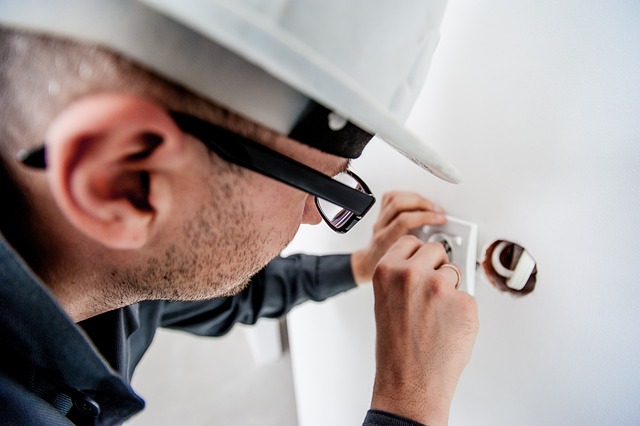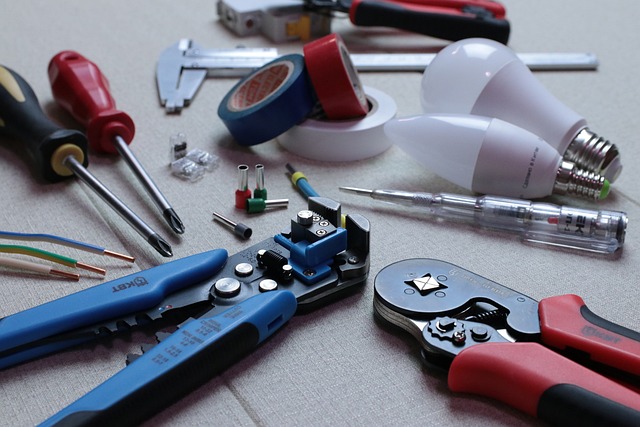The advancement from early fuses to modern circuit breakers has revolutionized electrical safety and maintenance, transforming the role of electricians. Traditional fuses were simple devices that melted under high current but required manual replacement and couldn't be reset, leading to inconvenient service interruptions. Circuit breakers solved these issues by automatically shutting off and restoring electricity in cases of overcurrent, thus enhancing safety and minimizing downtime. Electricians now focus on maintaining sophisticated systems that require professional installation and adherence to safety standards and local regulations. Upgrading to circuit breakers provides substantial benefits, including better surge protection, increased safety, faster power restoration, and a reduced risk of fires. These systems are also highly customizable to meet individual property needs, ensuring optimal performance and reliability. For homeowners and businesses, employing a certified electrician for this upgrade is not just a necessity but an investment in a more advanced, safer, and efficient power infrastructure.
When it comes to safeguarding our homes and businesses from electrical hazards, the evolution from traditional fuses to advanced circuit breakers represents a significant leap forward in safety and efficiency. This article delves into this transformation, highlighting the critical role of professional electricians in upgrading your electrical system. By exploring the installation process and the myriad benefits of switching from outdated fuses to modern circuit breakers, we ensure that readers understand the importance of this upgrade for their properties’ safety and functionality.
- The Evolution of Electrical Safety: From Fuses to Modern Circuit Breakers
- Understanding the Installation and Benefits of Circuit Breaker Upgrades by Professional Electricians
The Evolution of Electrical Safety: From Fuses to Modern Circuit Breakers

The evolution of electrical safety has been a cornerstone in the advancement of home and industrial wiring systems, marking a significant leap from the early use of fuses to the advent of modern circuit breakers. Traditional fuses, once the primary means of safeguarding electrical circuits, consisted of a piece of metal that would melt when excessive current flowed through the circuit, thereby interrupting the circuit and preventing damage or fire. While effective in their time, these fuses had limitations; they had to be replaced after use and were not resettable, leading to temporary disruptions in electrical supply until a qualified electrician could replace them.
As technology progressed, so too did the solutions for managing electrical currents safely. Circuit breakers emerged as a revolutionary advancement in this field. Unlike their predecessors, these devices could detect overcurrent conditions and automatically open or close electrical circuits without the need for manual intervention. This innovation not only enhanced safety but also significantly reduced downtime, as circuit breakers could be reset after tripping, thereby restoring power swiftly. The role of an electrician has thus shifted from frequent fuse replacements to maintenance and periodic inspection of these sophisticated systems, ensuring they operate correctly and efficiently under all conditions. This shift underscores the importance of staying current with electrical technology advancements to maintain safety and reliability in electrical installations.
Understanding the Installation and Benefits of Circuit Breaker Upgrades by Professional Electricians

When upgrading from traditional fuses to modern circuit breakers, the process involves a careful and skilled installation that should only be performed by professional electricians. These experts possess the necessary knowledge and adhere to stringent safety standards to ensure the transition is seamless and compliant with local regulations. The benefits of this upgrade are manifold, including enhanced protection against electrical surges, improved safety for your home or business, and quicker restoration of power in the event of an overcurrent situation. Circuit breakers provide a failsafe by interrupting the flow of electricity when a fault is detected, thereby preventing damage to both the electrical system and connected appliances. This not only safeguards against electrical fires but also extends the lifespan of your electrical devices. Moreover, the precision with which electricians can install these systems means that they can be tailored to the specific needs and capacity of your property, ensuring optimal performance and reliability. By choosing a certified electrician for this task, you are investing in a safer, more efficient, and more reliable power infrastructure.
In conclusion, the evolution from traditional fuses to modern circuit breakers represents a significant advancement in electrical safety and reliability. Homeowners and businesses alike stand to benefit immensely by upgrading their systems with the expertise of professional electricians. These experts not only ensure a seamless installation process but also provide the peace of mind that comes with enhanced protection against electrical surges and short circuits. By embracing circuit breaker technology, we secure our homes and workplaces from potential fires and electrical hazards. The transition is not just a step towards safety; it’s an investment in the integrity and longevity of our electrical systems. For those considering this upgrade, the choice of a skilled electrician is paramount to guarantee effective and efficient service.
